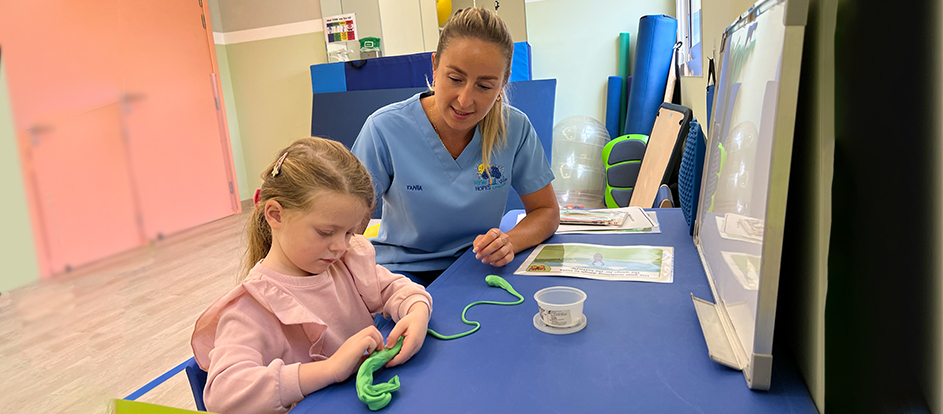

School Readiness

Tania Padovan
Pediatric Occupational Therapist
DHA License Number: 73439424-002

Starting school is an exciting fun-filled time, but it can also seem like a big scary change and a step for children and parents. Planning and preparing your child for this transition can be a smooth process with the right tools and views. Foundational skills that can be actively facilitated for your child to have when starting school will set the tone for the rest of their school years.
Many people believe academic skills, such as writing, counting and colouring are the only part of school readiness. However, in addition to these fundamental skills, other areas of importance such as self-care and independence (toileting, opening lunch boxes, packing their own bag), language and literacy, social-emotional, cognitive, physical development, play and fine motor skills, all play a big role in a child’s development to be ready to start school.
Understanding each area that will assist with your child transitioning into school:
- Self-Regulation: This is the child’s independent ability to obtain, maintain and change their emotions, behaviour and attention appropriately for the task or environment they are in.
- Sensory processing: How the child can integrate and interpret information from their sensory systems including touch, movement, visual, auditory, smell and taste. Sensory processing can affect how a child sits, their focus and attention towards the teacher, and may become easily distracted by lights or sounds.
- Emotional development/regulation: Understanding and being able to voice their emotions, understanding of others’ emotions and how to regulate their own emotions.
- Planning and sequencing: Being able to complete multi-step task/activities such as cut and paste, putting items back in the correct order or 2-3 step visual or verbal instructions being given.
- Fine motor skills: The child’s ability to be able to hold a pencil age-appropriately, drawing, cutting skills, opening/closing items, zipping up zips and donning/doffing shoes.
- Gross motor skills: To be able to sit up appropriately during tabletop activities and during floor time, adequate balance and coordination while running and walking, hand eye coordination skills and bilateral coordination.
- Executive functioning: Following instructions, planning, reasoning and thinking skills, focusing on tasks. For example: “What do I need to pack to take to school?”
- Receptive language (understanding): Ability to understand and comprehend spoken language (understanding teachers’ instructions and communicating with peers).
- Expressive language (using language): Producing speech or language that can be understood by others, such as talking to friends and teachers.
- Articulation: To clearly express and pronounce individual sounds in words.
- Social skills: Verbal or non-verbal. Being able to engage and reciprocate interaction. Compromising with others, sharing, playing independently as well as with peers, basic manners, following directions, listening skills, respecting and understanding of personal space.
Things parents can do and look out for in preparation for school:
- Developing independence: Life is busy, and we are all on a tight time frame. But when we are constantly assisting our children in self-care tasks such as eating, dressing, getting ready to go out of the house or toileting, it can make it difficult when preparing them for school and everyday life. By nurturing more independence in our children, we are giving them room to take on more self-responsibility where possible. When your child is completing a self-care task, try to assist verbally more than physically. For example. when putting their shoes on, packing their bag or wearing their jacket. Big praises after completing these tasks by themselves is encouraged.
- Outings: When going out to the park, zoo, water parks, malls and libraries, assist your child to acknowledge and understand the importance of appropriate behaviours and interactions when in public and engaging with other children. Have them also pack easy snacks in their backpack along with their water bottle and a hat.
- Social skills: Play dates and meeting new children at the park, library or beach are a great way to encourage social skills and communication, play and build positive relationships.
- Sports: Sports are not only a fantastic way for children to build their gross motor skills, but also a great way to help children regulate their emotions and bodies. Sports also teaches children to work as a team, communicate, focus, listen and follow instructions. Whether an independent sport such as swimming, gymnastics, karate or a team sport such as football, rugby or net ball, they both teach children lots of foundational skills that they will use throughout their lives.
- Visuals: Implementing visuals in the home setting can assist children with understanding the structure of their day, following the plan and order of what needs to be completed first. Basic visuals can be used in morning routine starting first with brushing teeth, eating breakfast, getting dressed then packing their bag for their day. Another great visual is placing their name sticker on all their items, so children become familiar with their belongings and name.
- Teachers: Working and discussing with teachers to identify any signs in your child’s development is encouraged. Teachers are trained to identify any areas that children may need assistance in developing before they start school.
When beginning intervention, it is important to understand the roles that your therapist will have with your child. It is also important to complete assessments to understand the child’s strength and what areas need more support, rather than just from an observation point. This also helps the therapist set realistic achievable goals where progress can be monitored swiftly.
An Occupational therapist’s role when assisting children with school readiness is to create the session to a similar standard to what the school have implemented. A visual schedule of what activities will be completed and engaged in during the session is used and followed accordingly. Activities can include fine motor activities (pencil grip, grasping patterns, hand strength/manipulation), writing skills, sensory and emotional regulation, gross motor development (hand eye coordination, balance, core strength, coordination), executive functioning skills, improve self-care, independence as well as play skills.
Speech therapists play another vital role in assisting children when starting school. Supporting with other therapists, a visual schedule is implemented, which will again, set the expectation of the lesson and what the child will be achieving. A Speech therapist will work with children on their communication, receptive and expressive language, articulation, phonics, reading and social and play skills. Both interventions play a supporting and crucial role in children’s development in and out of the school settings.
Communicating and listening to the guidance of your nurseries, teachers and health care practitioners regarding any concerns in your child’s early development is a great way to assist and support children with social, emotional and communication development. It will also improve their self confidence in other areas such as gross motor, fine motor, play skills (creating positive friendships), independence, emotional regulation and most importantly school readiness. Beginning early intervention and supporting your child’s needs when beginning school is a positive long-term impact which will set the foundational stepping stones for years to come.


